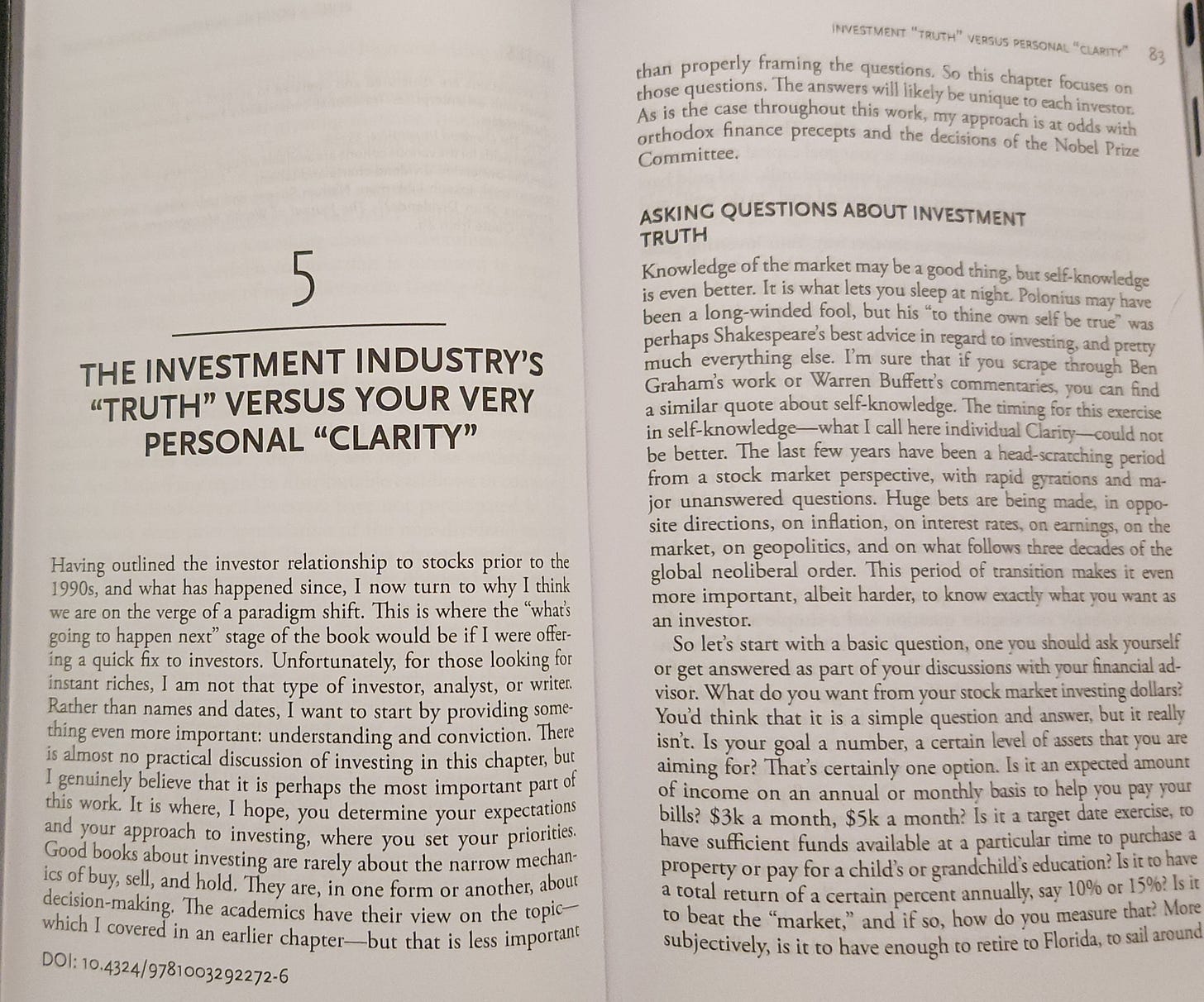The Ownership Dividend came out one year ago. If you are reading this, you already know the arguments. No need to repeat them here. The pushback is far more interesting. And it can be summarized as a matter of Philosophy, not Finance.
1. Modern academic finance & the current investment culture see no difference between an unrealized capital gain & a dividend payment. But one is a highly predictable (if not certain) business outcome; the other is a contingent market outcome. In a rising market, they can appear to be similar forms of return, but they are fundamentally distinct outcomes. For many, going for unrealized capital gains may be the preferred path, but that is a choice, not a dictate.
2. As a corollary to the first point, both modern academic finance & Wall Street see a share repurchase & a dividend payment to be equivalent forms of the sweet-sounding "returning cash to shareholders." They are not. One is a return to shareholders; the other offers liquidity to those wishing to sell their shares. It is a funny sort of "success" that requires you to part w/your investment. Over a trillion dollars in buybacks in 2024 suggest I hold a distinctly minority view. And that's fine. But the current popularity of buybacks does not change their intrinsic nature.
3. Share-ownership vs business ownership. Many reviewers couldn't care less about business ownership. They were just fine with share-ownership: numbers that go up/down on a screen & don't mean much else. That's a choice, but one encouraged by modern academic finance which treats stock market investment mostly as an exercise in number theory, not business ownership.
4. Dividends are taxed when paid, on a regular basis. Capital gains are taxed only when realized. Subordinating investment policy to tax minimization is a very popular choice in the market, but it is just a choice. And it is not without risk. On this point, I have been mauled, excoriated, & lambasted. Guilty as charged.
The reaction to TOD has highlighted for me how much investment is not primarily a quantitative discipline, but a philosophical one in deciding what one wants & is prepared to risk for it. And that decision turns out to be just as hard, if not harder, than achieving those goals. In that regard the most important chapter of TOD is not the two dense ones on academic finance (skip them) or the seemingly most topical one on our topsy-turvy geo-politics, or even the thread running through the work about what happens when interest rates stop going down after 40 years. Instead, it is Chapter 5, on investment philosophy, contrasting the academy’s canonical Truth to the investor's even greater need of personal Clarity.
I want to thank all of those who have reacted to TOD, especially those journalists and academics and practitioners who were having none of it.
(Meta AI generated photo w/prompt: Philosophy debating Finance in the style of a Holbein.)
.
.





Very well said Daniel. And congrats for having to courage to defend your (correct) convictions against the crowd! You and your books definitely are a source of inspiration. Cheers. Olivier
"It is a funny sort of "success" that requires you to part w/your investment." I laughed out loud.
It's a bit like selling your beloved house. You love the house. It's served you well. Then someone offers you a really sweet price. You're kinda greedy. So you sell it and you get a big payout. BUT THEN YOU HAVE NO PLACE TO LIVE. Okay, you can buy another house with your cash and move. The academic economists would call this a "cost." Ordinary people would call it a fucking hassle.